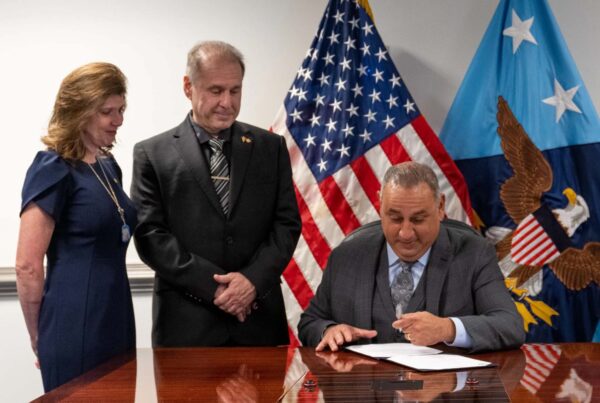From KERA News:
Refugee Services of Texas, the state’s largest resettlement agency, is shutting down after 45 years. RST made the announcement on Friday citing its inability to raise enough money to stay open.
The news comes as federal officials who oversee the U.S. Refugee Admissions Program say they’re waiting on the findings of an independent audit report of Refugee Services of Texas’ finances and management practices. Earlier this month, RST said it was closing its Fort Worth and Houston offices and implementing an “emergency restructuring plan” because of a severe budget shortfall.
A State Department official told KERA they’re “monitoring the situation closely” after RST announced its major budget crisis forcing it to close offices, cut staff and not accept new refugee clients.
Meanwhile, several organizations responsible for administering federal dollars to resettlement agencies said they decided to end their partnership with RST. One of those organizations, Church World Service, told KERA that it found the resettlement agency’s budget problems were affecting its ability to deliver services to its clients.
Mary Elizabeth Margolis, Senior Director of Communications at Church World Service, told KERA in an email that her organization had conducted its own audit and monitoring of RST.
“Following reports of initial concerns regarding the financial health of Refugee Services of Texas, CWS conducted an onsite monitoring of programs in Dallas, Amarillo and San Antonio, including financial audits, case file reviews and interviews with clients and staff,” Margolis wrote. “This monitoring found that Refugee Services of Texas was facing budget shortfalls impacting compliance and service delivery.”
Margolis also said at the time that CWS was saddened by the Fort Worth and Houston office closures.
“RST has been a long-standing partner of CWS and the leading provider of services for refugees and other immigrant populations in the state for many years,” Margolis wrote. “We’re doing everything we can to support a smooth transition for clients of RST, working collaboratively with local partners, including the state and other resettlement agencies.”
This latest development affects RST’s remaining offices in Amarillo, Austin, Dallas and San Antonio. In a statement, RST said its Dallas and Amarillo offices will now be managed by Church World Service. Its Austin office will be overseen by Episcopal Migration Ministries and other resettlement agencies in San Antonio will take on RST’s clients there. RST’s human trafficking program, which is staffed by employees in Austin, Harlingen and Houston, will be permanently closed.
Financial questions
This isn’t the first time questions have been raised about RST’s finances. Three years ago, a federal audit looked at how the agency spent and accounted for $2.7 million in grants it received for its Comprehensive Services for Victims of Human Trafficking program. The audit covered a five-year period from September 2014 to August 2019.
In its report, the Office of Inspector General identified a number of concerns including:
– A total of “$24,969 in unallowable expenditures related to unauthorized personnel costs, contractor and consultant services, travel costs, shredding services, and other direct costs.”
– A total of “$275,365 in unsupported expenditures related to personal costs, contractor and consultant services, other direct costs, and matching costs.”
– “Progress reports were inaccurate or not supported, financial reports were inaccurate, RST was not in compliance with a special condition of the award,” and that “RST did not have a reliable and documented methodology for allocating costs among awards prior to October 2018.”
The Office of Inspector General made 10 recommendations to the Office of Justice Programs, which is the office that awarded RST four cooperative agreements totaling more than $2.7 million.
RST responded to the audit in a detailed letter addressing the audit’s concerns and recommendations. In the letter, the agency described improvements it would make, including strengthening its written policies and procedures. The agency also disputed some of the audit’s findings, provided explanations and said it would provide additional documentation.
KERA reached out to the Department of Justice’s Office of Media Affairs to find if the issues outlined in the audits were resolved but has not heard back yet.
An emergency plan
Earlier this month when RST announced its emergency plan, it said the agency had resettled a record number of 4,700 refugees during the past 18 months and that expenses had outpaced its expectations. To meet those needs, RST said it had to severely drawdown its financial reserves.
In addition to office closures in Fort Worth and Houston, it said it planned to cut its workforce by 45 percent and pause new refugee arrivals for 120 days.
The U.S Refugee Admissions Program known as Reception and Placement provides funding — $2,375 per individual refugee — to resettlement agencies for administering the program and to help with costs like rent, furnishings, food and clothing. But those who work in the resettlement community say it’s a public-private partnership and that an agency has to also get supplemental funds through fundraising and donations.
CWS, which terminated its subcontract agreement with RST, was responsible for administering federal funds to the agency for its Reception and Placement Program, as well as services for unaccompanied children in Dallas and Austin.
Margolis said her organization was working with RST to close out cases and “ensure that all clients serviced through these programs continue to receive the services they are eligible for and support they need during this time of transition.”
She said CWS routinely monitors all of its local providers and requires an annual financial audit from its sub-grantees.
Lutheran Immigration and Refugee Service said it too had ended its partnership with RST.
In a statement to KERA, the group said, “We are aware of the current challenges faced by Refugee Services Texas. Client wellbeing is our utmost priority. After an extensive review, we have discontinued our relationship with RST and have transitioned all our clients to new partners. We are actively engaged to ensure any outstanding needs are met and to ensure compliance with all regulations covering applicable government programs.”
Federal officials and other resettlement agencies have noted that the U.S. withdrawal from Afghanistan and large number of Afghan arrivals has challenged resettlement agencies, which were in the process of rebuilding after cuts during the previous administration. More than 76,000 Afghans were evacuated from Afghanistan when the U.S. military pulled out of the country.
“The fast pace of arrivals over the past two years, including the need to quickly mobilize to welcome Afghan evacuees, has been a difficult challenge for resettlement agencies and their local partners, including RST.” Margolis said. “These federal funded programs operate on a cost-reimbursement basis, requiring careful cash flow management to handle.”
Jeff Demers, State Refugee Coordinator at the Texas Office for Refugees, said his office and RST mutually agreed to terminate the remainder of their sub-grant agreement. He also said TXOR was reassigning client files from each of RST’s six locations to other community partners around the state.
“Our top priority continues to be serving clients seamlessly throughout this process. To that end, we are prepared to assist with all possible solutions,” Demers wrote.














